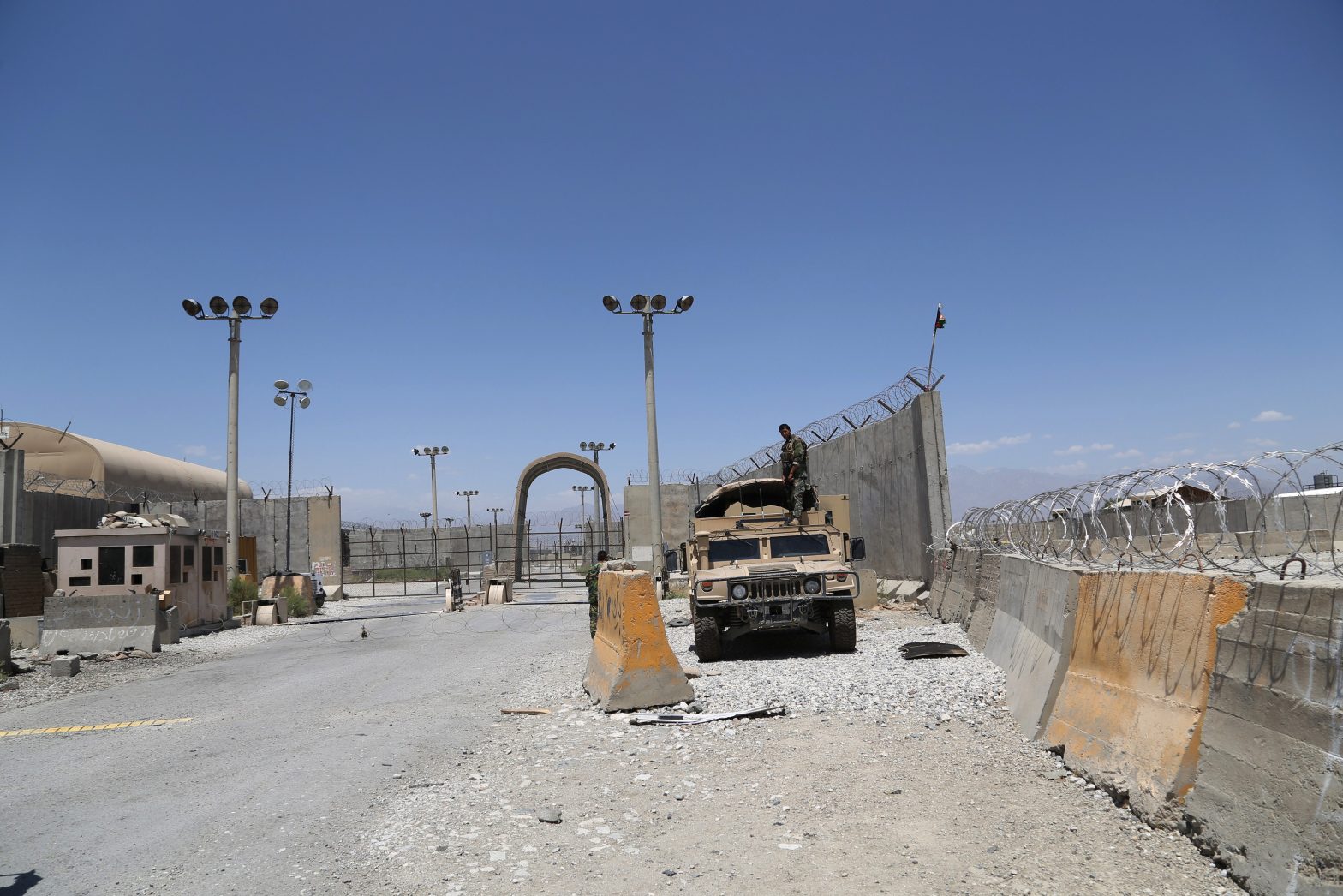After American Failure in Afghanistan, China is Trying Another Approach
COMMENTARY

As the old adage goes, the definition of stupidity is doing the same thing repeatedly and expecting a different result. Is anyone in charge going to do any soul searching to ask why history has yet again repeated itself in Afghanistan?
American and allied troops evacuated their base at Bagram Airfield earlier this month, handing it over to the Afghan military as remaining NATO combat operations draw down ahead of U.S. President Joe Biden’s planned Sept. 11 withdrawal deadline. Biden’s critics have compared Afghanistan to the Vietnam War and the fall of Saigon in 1975, conjuring up the iconic image of the final helicopter out of Saigon evacuating Americans from the roof of the U.S. Embassy.
But it was long before the fall of Saigon that Americans wondered what the U.S. was doing in Vietnam and whether the cost was worth it for the average citizen. The same can be said of Afghanistan. If images of helicopter evacuations are a concern, it’s a clear indication of mission failure. But after nearly 20 years of American intervention in Afghanistan, you’d think there would be something to show for it.
The initial pretext for involvement was to neutralize the Taliban, which was accused of harboring al-Qaeda mastermind Osama bin Laden in the wake of the 9/11, terrorist attacks on U.S. soil. Largely ignored was the fact that bin Laden and the vast majority of those who carried out the attacks were citizens of U.S.-allied Saudi Arabia.
But the Taliban never really went away. The U.S. captured some of them, detained them at the military prison at Guantanamo Bay, freed them in a hostage exchange in 2014, then began “peace negotiations” in 2018, announcing to the world that the U.S. was working out a deal with the Taliban to ensure stability in Afghanistan.
Does anyone really think that the millennial and Gen Z Taliban members retaking control of Afghanistan piece by piece after two decades of what they consider to be the foreign occupation of their country since their birth are going to abide by the deals made by these boomers?
It all seems like bad theater meant to save face amid the long-overdue exfiltration of Western troops. If the Taliban is likely to return to power in Afghanistan and the Afghan army isn’t well-trained enough to do much about it, you have to wonder what exactly has been going on over the past 20 years. Where’s the bang for the American taxpayer’s buck after an estimated $2 trillion and 241,000 total lives lost?
Knee-jerk neoconservative interventionists are already categorizing Biden’s withdrawal as a failure. John Bolton, who served as national security adviser under former President Donald Trump, wrote of a “disastrous withdrawal” in Britain’s Telegraph newspaper. Rep. Michael McCaul of Texas, the top Republican member of the House Foreign Affairs Committee, said on Fox News: “We’re going dark in Afghanistan, and there’s going to be consequences long term for this. President Biden [is] going to own these images.”
The failure happened long before Biden came along. Biden simply decided (as Trump did before him) that there was no use throwing good money after bad. How much longer did these guys want taxpayers to continue to write blank checks for this war without seeing a return on their investment?
Now China is set to move in with the strategy that the U.S. probably should have tried: a purely economic one. Afghanistan is apparently eyeing a $62 billion Chinese investment offer as part of Beijing’s planned China-Pakistan economic corridor. Countries such as Montenegro, with its $1 billion, 25-mile unfinished road to nowhere, have found themselves ensnared in a debt trap after accepting loans from Chinese banks. It’s a strategy China has used with a certain number of countries, notably in Africa. But even if the strategy accomplishes nothing at all, it will still be on par with what the U.S. accomplished in Afghanistan.
There is already a Western legacy in Afghanistan shaping up, and it’s the exact opposite of the originally stated counterterrorism objective. As the Taliban takes over, other jihadist militia groups are leaving Afghanistan and entering neighboring countries — a sort of jihadist Big Bang — risking disorder throughout the region and presenting a potential threat to countries such as China, Pakistan and Russia.
So in a few years, when these nations are trying to liquidate these jihadists as domestic threats and U.S. officials are screaming about human rights violations by these countries, you’ll know the rest of the story.
©2021 Tribune Content Agency, LLC























